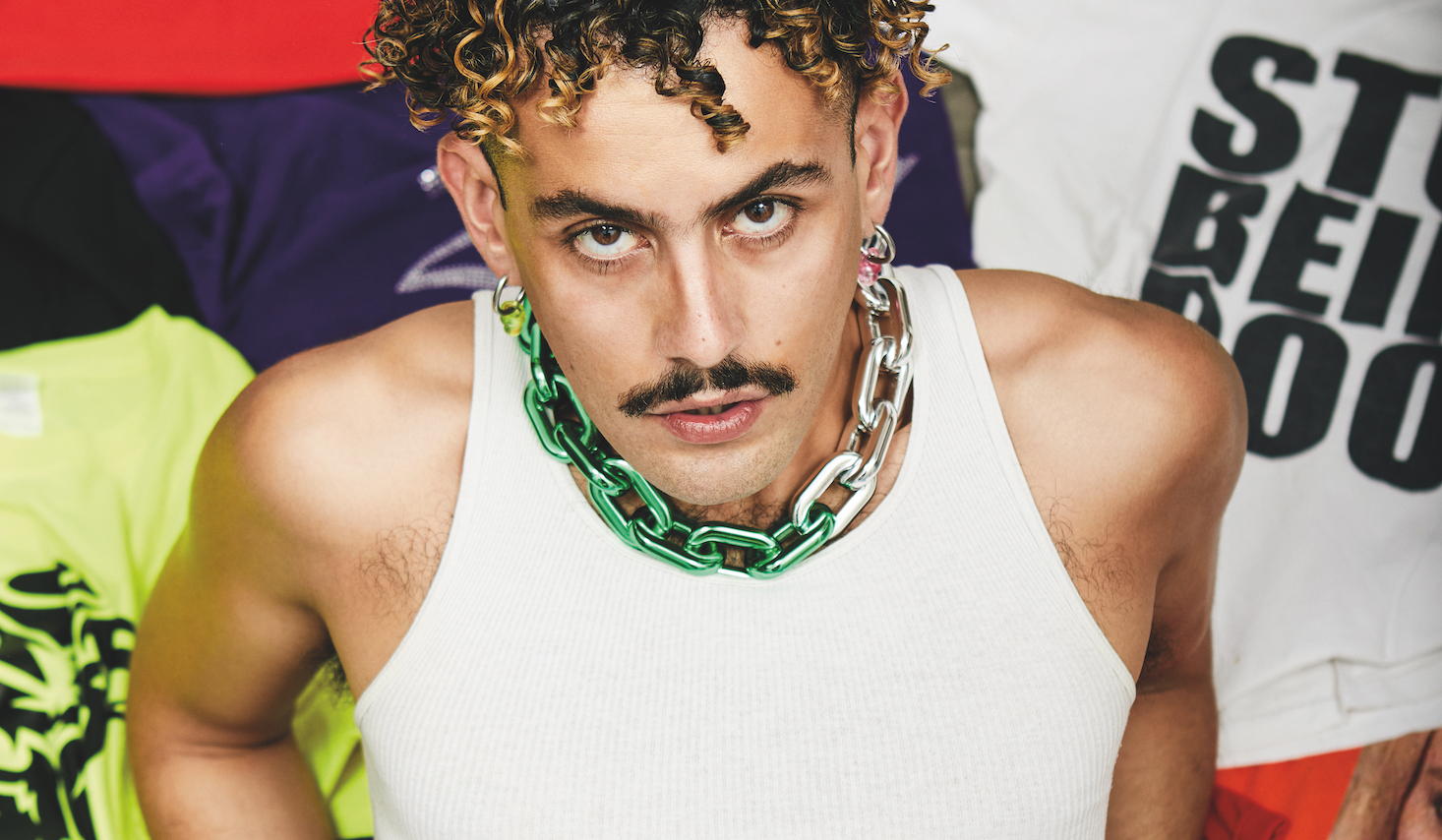
Welcome to Queer By Design, a monthly column by Jamie Windust. Here, Jamie profiles emerging designers about the intersections of style, identity and expression and how these factors inform their creative practice.
Many strive to capture the hedonism and freedom that queer folks experience on the dance floor. Few do it as well as Spanish-born, London-based designer and DJ Chema Diaz.
Dive into London’s nightlife scene and you’ll see his iconic ‘J’adore Hardcore’ t-shirt stretched across sweaty torsos everywhere you turn at the city’s warehouse parties and basement clubs. A tongue-in-cheek riff off of the aughts ‘J’adore Dior’ slogan tees from John Galliano’s Dior tenure, the garment was initially a one-off which Diaz printed for £10 before a DJ gig.
But the irreverent energy of Diaz’s tee quickly caught the attention of party-goers, who wanted to know where they could get their hands on one themselves. The organic demand led Diaz to print a small selection for sale – all of which sold out in a day. Long before brands like Heaven and Praying jumped onto the slogan-mania train, Diaz displayed a cheeky way with words – expanding his initial tee into a range of vests and t-shirts emblazoned with epithets like “Fashion victim” and “F*ck me I’m an immigrant”. Today, the multi-hyphenate is one of the UK capital’s favourite scene stars.
To learn more, GAY TIMES sat down with Diaz to find out more about his fashion design journey and gain his thoughts on how nightlife has changed post-2020.
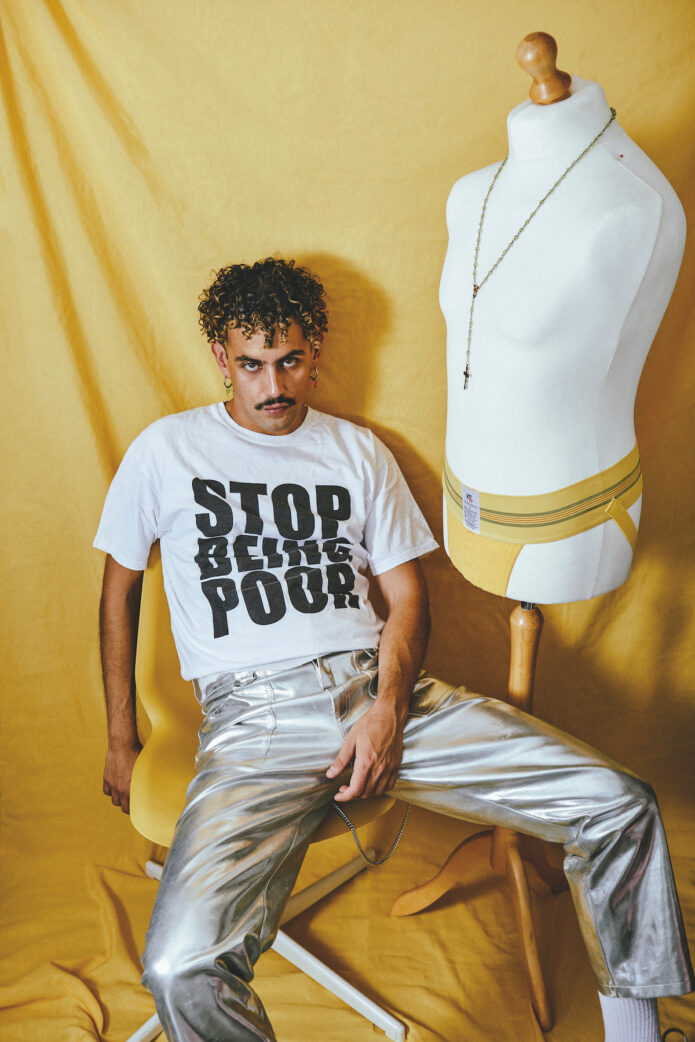
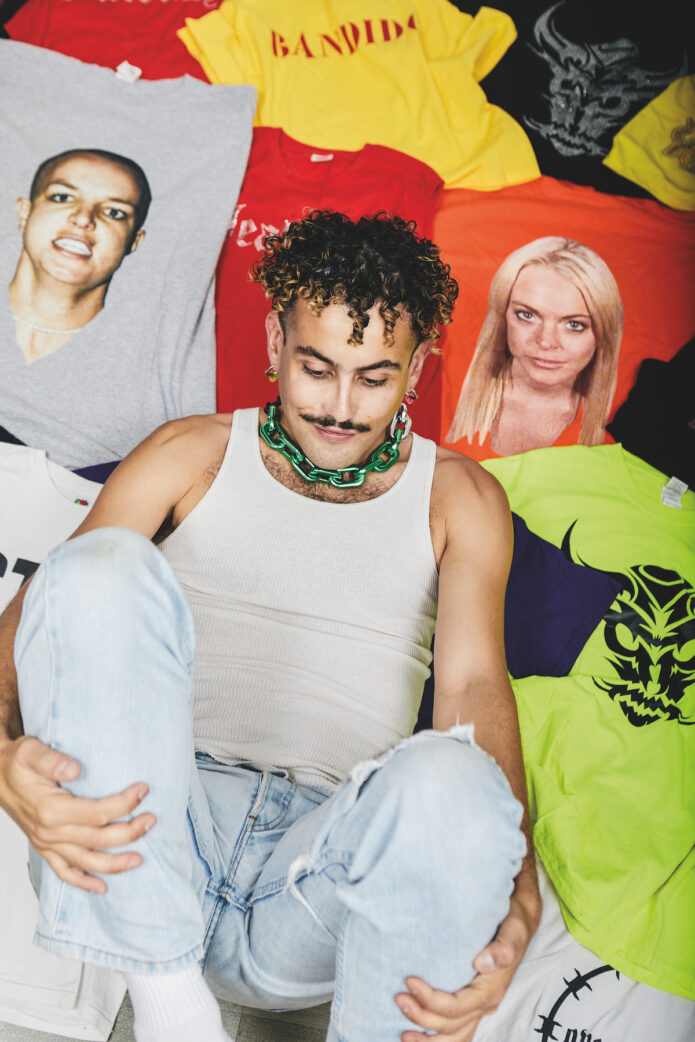
Hi Chema! Your work explores partying in such a unique way – what drew you to want to showcase queer nightlife through your designs and imagery?
Music and fashion always go hand in hand. I started designing and customising pieces and styling my friends in them to go out to London raves, which helped me kickstart my career as a fashion stylist in London. The dance floor is one of the few remaining spaces for full self-expression, where you can transform into whoever you want to be that night. I have always been very interested in the sociological aspects of costume and identity, person vs persona, and the rave is the perfect stage for your fantasies to come true.
I went to Camden with a USB, £10 and a dream.
Your J’adore Hardcore t-shirt has become so hugely popular among the queer community here in London. What was the process behind its creation?
It came naturally, as Selena Gomez would say. I am a working-class immigrant in London and years ago I was invited to DJ at a Balenciaga party in Paris. I literally had nothing to wear, so I went to Camden with a USB, £10 and a dream. I printed that tee to wear during my set and everyone was like “ooh la la la, j’adore le t-shirt”, so I printed 10 more [for sale]. They sold in one day and, well, the rest is history. I am very proud and thankful for the response the t-shirt had. I think it encapsulates the core ethos of my brand: music, fashion and tongue-in-cheek erotica.
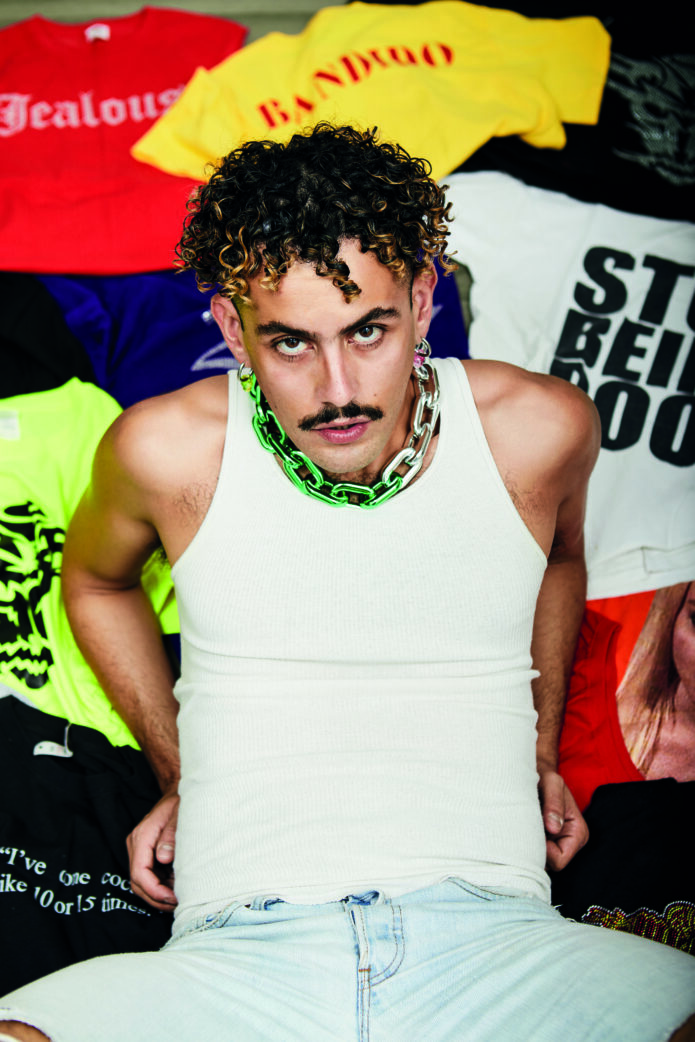
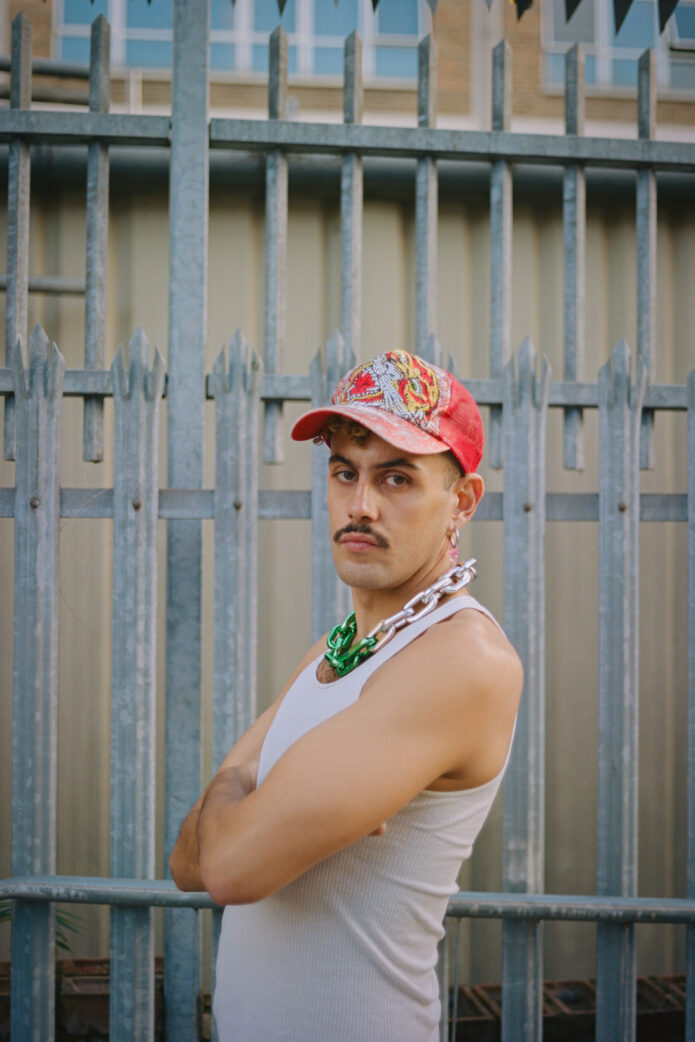
Back in 2019, you released your BANDIDO collection. At the time, you described it as aiming to “re-appropriate traditional imagery historically linked to far right movements”. Would you still say your work is political?
Coming from an academic background of race and gender studies, I always focus on the sociological and cultural impact of my actions as a designer and company owner. But I think it is also important to relieve pressure from queer artists to always be protesting or fighting for a cause. I don’t think everything should always be politicised, or that we should carry the responsibility of saving each other, or the world. I am advocating for a future in which we can just exist, create, and have fun – and make money – whilst doing it. Our existence, self-expression and appearance are already political enough – let us just have some fun and look hot for a minute. That’s what I intend [with my work], to release weight from my customers shoulders and help them have a great time and love themselves when they look in the mirror.
Queer parties are still the only interesting parties to attend.
Your work is mostly closely associated with the club. Have you noticed any changes in how the queer community exists in nightlife spaces since 2020?
This is something that I have been thinking about deeply over the last few years. Being truly honest, I miss pre-pandemic nightlife. I have the feeling everything has become very sanitised, and very segmented lately. As important as it is to have specific spaces for queer people, I can’t avoid spotting a dissonance between the marketing of queer parties, and the actual dynamics that happen in them – specially when it comes to the venue’s management and security, and sometimes its attendees.
How can you call your party a safe space when the security is blatantly queerphobic? How can we feel safe when we’re surrounded by hyperbolic hyper-masculine men off their faces on G? How can we feel invited to a party when the entry fee alone is £25 minimum, plus cloakroom, plus drinks, plus the ride back home? Queer parties are still the only interesting parties to attend and they will always be the only interesting parties to attend. But especially in London, unfortunately, I have the feeling everything has become very corporate and profit-driven.
If there was one thing that you’d want to tell someone who’s new to your work – what is it about the brand that makes Chema Diaz unforgettable?
The power of dreams. I hope that everyone that follows my work and wears my creations feels empowered to dream. You don’t have to go to fashion school to be a fashion designer, you don’t need to have a mezzo soprano range to be a singer. To be an artist, you just need a pen and some paper. Feel free to create, and feel free to make your dreams come true. Don’t limit yourself by your past, your wallet, or your environment. If I could do it, then you can too. Be free and have fun.